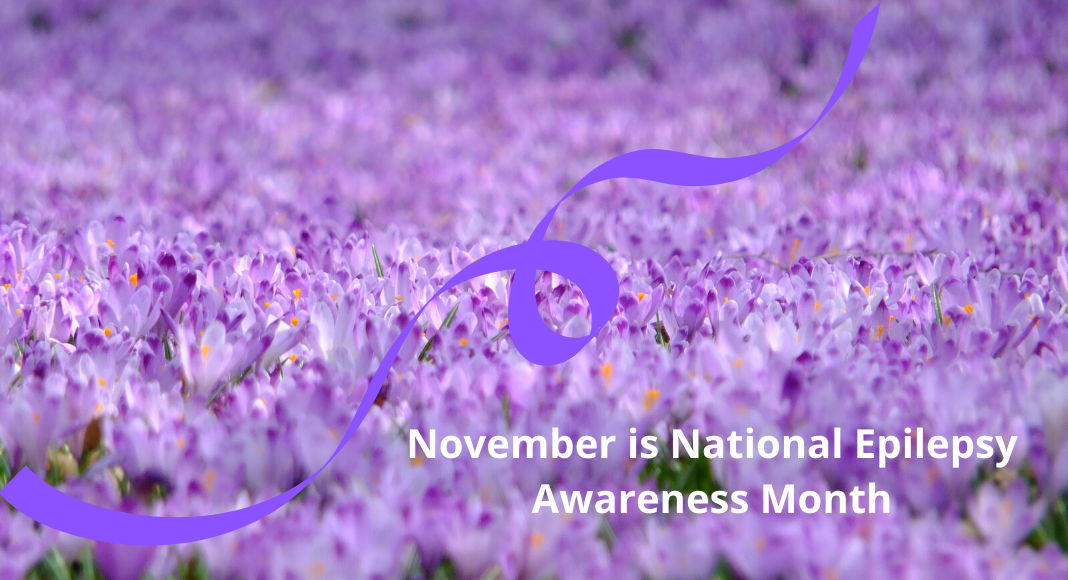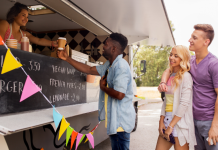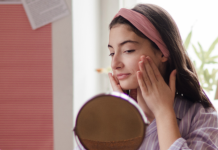I didn’t expect to hear her diagnosis over the phone: “She has Juvenile Myoclonic Epilepsy. She needs to take Lamotrigine; you can pick it up at the pharmacy first thing in the morning.”
Looking back and knowing what I know now, I would have demanded that the doctor’s office bring my daughter and me in to explain in detail what to expect and how to proceed.
November is Epilepsy Awareness Month; epilepsy, I learned, changed everything I thought I knew about parenting.
When Cameron Boyce of Disney’s Descendants died earlier this summer as a result of SUDEP (Sudden Unexpected Death in Epilepsy), I, much like most of the world, was in shock. This celebrity death affected me in a way that only the parent of a child with epilepsy can truly understand.
My daughter was 17 when she had her second seizure and was diagnosed. Cameron Boyce was also 17 when he was diagnosed with epilepsy. They were both born in 1999. I was struck by how little Cameron’s parents knew about SUDEP. But then I thought back to how I learned of my daughter’s diagnosis. I realized quickly the importance of epilepsy awareness.
In the spring of 2016, we had spent the day at an end-of-the-homeschool year picnic. After a normal afternoon and evening, she, like most kids her age, disappeared into her bedroom. For some reason, which we’ll likely never know, she came downstairs at around 9 p.m. to sit at the kitchen table. (We later learned that she does not even remember coming down the stairs at all that night.)
I was sitting in the office half-working and half-watching something on television. I heard the clanging of a kitchen utensil dropping to the tile floor and then a guttural groan and thump. My husband and I ran to the kitchen to find my daughter on the floor having a seizure.
I ran to kneel beside her and yelled to my older son for some reason. Clarification, perhaps? I wasn’t sure this was a seizure as I’d not been there the first time. Her first seizure took place on the school bus eight years prior; her big brother was by her side when it happened.
My son confirmed that this looked exactly like what had happened that day on the bus. (I’ll be forever grateful to the nurse, staff, and then principal Camilla Groome at Newington Elementary School in Summerville for how they handled the entire situation from start to finish.)
At one point mid-seizure, I watched a trickle of blood drip from her mouth onto the floor. I think this was the moment I started to panic. My husband had since called 911 and they were on their way, but it seemed an eternity.
 I came to learn several things that day and in subsequent days. I learned EMTs will ask you questions about your child that you may not be ready for. No, she doesn’t use drugs, and no, there was no chance she may have used drugs that day. Was there?
I came to learn several things that day and in subsequent days. I learned EMTs will ask you questions about your child that you may not be ready for. No, she doesn’t use drugs, and no, there was no chance she may have used drugs that day. Was there?
I learned that typically epilepsy is diagnosed after a second seizure; never a first. After the first seizure, they simply performed a CAT scan and chalked the seizure up to stress (her father and I had just separated, and she had been working hard in the Gifted and Talented program at her school).
I learned that people with epilepsy have triggers that may contribute to seizures. I learned that you have to truly advocate for your child and find a neurologist that treats them with respect. I also learned that doctors don’t always give you all of the information you’re going to need to know, and it is imperative that you research, read, and ask as many questions as possible in the days, months, and years after an epilepsy diagnosis. Cameron Boyce’s parents, sadly, learned this in the most difficult way possible. My heart still aches for them.
I learned that because her seizures are controlled very well by meds (which she’ll likely be on at least well into her forties or indefinitely), she’s able to drive, hold a job, and basically live a normal life. I learned, too, that despite all of that, I still stress out regularly over her health. I still make her text me when she leaves work. I still occasionally check on her in the middle of the night. That doesn’t go away. I don’t know if it ever will.
I learned that everything I read about epilepsy would become part of the standard “mommying” that I do on a daily basis. When my youngest child crawled into bed with us over a period of a few weeks, I noticed every little twitch during his sleep. So much so, that I had a pediatric neurologist perform an EEG to ensure he wasn’t experiencing what looked to be Rolandic Epilepsy. (It wasn’t. Thanks, Google.)
I learned that there could be a connection between sleep apnea and epilepsy and that the keto diet that everyone goes so crazy for, was initially developed in the 1920s (before anti-convulsant medicines were developed) to help control severe epilepsy in young children. This is something I never tire of telling keto fans on the internet. I don’t know why it irks me so, it just does. I think it is because of the lack of awareness around epilepsy and how a keto diet wasn’t designed for what they think it was. It’s just a personal thing I’m sensitive to, I suppose.
I learned that every outing or concert or event that features flashing lights will cause me to check and double-check on my kids. Photosensitivity is a seizure trigger. When she was working as a background actor on The Righteous Gemstones, I checked in on her via text while she was on set as I’d been made aware of lighting effects being used. I checked in on her and her youngest brother as we watched that one scene in Incredibles 2. I made sure every one of my followers on social media was aware of the flashing lights in the movie. Disney ultimately remedied that situation after internet warnings went viral.
 Epilepsy has changed how I parent. I became an advocate.
Epilepsy has changed how I parent. I became an advocate.
November is Epilepsy Awareness Month, and while it’s not something you really think about until you need to think about it, it is important to at least be aware of what you should do if someone is having a seizure. The Epilepsy Foundation offers some safety tips and seizure first aid information to review in case you’re ever in a situation where you need to offer assistance to someone having a seizure.
My daughter has only ever had two seizures. She, much like many of us, have had the hypnic jerks, though – that feeling of falling as you drift off to sleep, or random leg or arm twitches as you’re dozing that wake you up. While her epilepsy is well-controlled by medication, there are many individuals who struggle to control their epilepsy. It’s a condition that is so individual. There are no constants, thus epilepsy awareness is important.
Epilepsy has changed how I parent. I became vigilant.
If a child sleeps in too late, I’m knocking at their door. If I hear something heavy fall upstairs, I immediately check on everyone. I check in with her on keeping her medication stocked. If we’re expecting a hurricane, I make sure she’s doubly stocked. I nag her about making sure she gets enough sleep. I check and double-check nutrition labels (her trigger is artificial sweeteners).
She turns 21 in a few months, and alcohol can be a trigger for seizures. So I’ll worry in a different way soon. And should she choose to have children someday, I’ll worry then about medication and pregnancy and all that comes with it. What I won’t do though, is stop reminding people about what to do when someone is having a seizure.
Approximately 3 million people in the United States live with epilepsy. We owe it to them to understand epilepsy. To learn more about epilepsy awareness initiatives in South Carolina visit the South Carolina Advocates for Epilepsy (SAFE) website.













